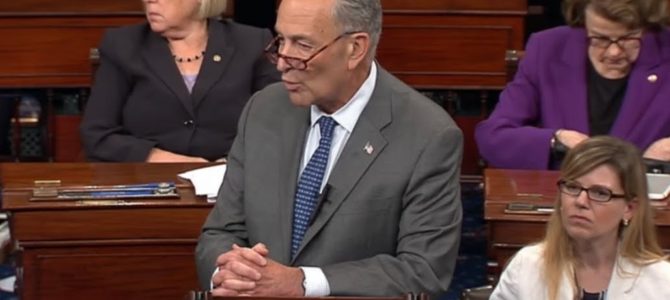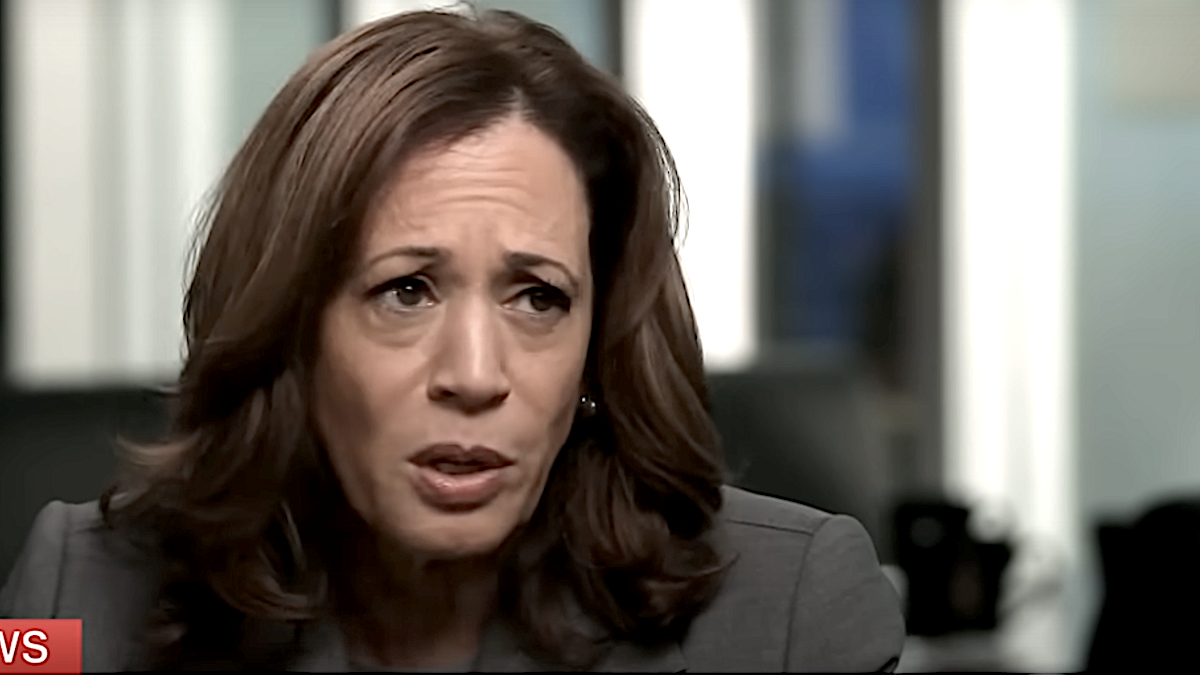
Democrats, it seems, may precipitate a government shutdown this week. They’re able to do this because, despite their own best efforts, in the United States, the minority party has a genuine ability to participate in governing the nation. It’s one of our system’s authentic strengths.
Then again, this episode — and many others over the past nine years — reveal something else about the modern Democratic Party: Minority or majority, it doesn’t really matter to them. Process and norms? Largely irrelevant. Not only do they believe it’s undemocratic for elected Republicans to vote against a Democrat president’s agenda when in the minority they believe it’s undemocratic for Republicans to vote for a tax bill even after winning both houses of Congress and the presidency.
Basically the existence of the Republican Party itself is undemocratic, because for many liberals “democracy” is nothing but a synonym for whatever hobbyhorse they’re focused on at the moment.
Yesterday, the House passed a short-term extension of government funding after President Donald Trump pressure a handful of reluctant members to sign on, ensuring the GOP could pull together enough votes to get it done. Around virtually the same time, NBC News was reporting that Democrats had the votes to block any spending bill in the Senate to prevent Republicans from keeping the government open.
Democrats blame the GOP solely for the shutdown. Yet, any person with even rudimentary understanding of American governance knows that’s not how this works. A minority can shut down the government — which amounts to very little but a paid vacation for non-essential government workers. In this case, they’re helping to do it because of an ancillary issue. Democrats will block the longest-ever extension of the CHIP program, because they believe it politically expedient to connect the DACA issue to the funding debate. Perhaps it’s good politics. We’ll see.
But the fact is, during the shutdown of 2013, the consensus of all serious, right-thinking people was that Republicans, who took basically the same position, were unfit to govern. When Republicans in the Senate were pushing for a pipeline in the spending bill, an issue their base happens to find important, Obama’s speechwriter Jon Favreau wrote, “Obama will not — he cannot — negotiate with a roving band of anarchists who say, ‘Build our oil pipeline or the troops don’t get paid.’”
The president never budged.
What’s different for them today or when GOP was insisting on Obamacare defunding? The issues. Democrats do not, as far as I can tell, have any objection to the continuing resolution (which needs 60 votes in the Senate) or CHIP funding. They are shutting down the government over DACA, which was a temporary solution enacted by fiat by Obama (when unilateral executive governance was celebrated). Now, Democrats can get their DACA deal in a few weeks if they agree to compromise with Trump and give him his wall — a wall that Senate Minority Leader Chuck Schumer, among others, has voted to fund in the past. You may like the idea of a more secure border wall or you may not, but Democrats lost a presidential election largely predicated on this issue, not to mention Congress. So that’s the price of a deal right now. If they don’t want to negotiate, they should win the presidency, the House and a supermajority in the Senate. Or, they can instigate a shut down.
No matter what position they find themselves in, however, it seems that Democrats treat all their positions as moral imperatives, and any pushback as apostasy rather than disagreement. They think of policy aims as you might think of natural rights. Vox’s Ezra Klein summed up the liberal faith rather well with this tweet:
https://twitter.com/ezraklein/status/954062729530273793
So on Earth 2 there is a one-party state with one election were the minority has no right to be heard or participate in governing — well, as long as that one party happens to be the Democratic Party. On Earth 2, liberal programs are the only ones under discussion, no matter how they are instituted. Conservatives issues are mere distractions, no matter who has the majority in Congress. On this Earth, Klein, who was once a strong advocate for doing away with the filibuster when it would have empowered Barack Obama to circumvent the minority in the Senate, now avoids the topic and instead argues for direct democracy.
Or, perhaps, he is arguing for any process that offers the Democratic Party the control it needs to dictate policy.
He’s not alone. As The Daily Caller points out, Minority leader Schumer helpfully used a hypothetical about immigration on ABC News’ “This Week” in 2013 to argue that shutdowns were immoral. “You know, we could do the same thing on immigration. We believe strongly in immigration reform. We could say, ‘We’re shutting down the government, we’re not gonna raise the debt ceiling, until you pass immigration reform.’ It would be governmental chaos.”
It’s not really chaos. Staggering hypocrisy, yes. Not chaos. I’ve seen a number of reporters attempting to lay the blame equally on all parties involved, since it’s virtually impossible to logically hold the GOP culpable this time (though I’m sure we’ll see plenty of insincerity about “obstructionism” from Republicans). The GOP already supports DACA, they say. Well, simply because Republicans are in favor of a DACA fix, broadly speaking, doesn’t mean they have to support it without any conditions, and it certainly doesn’t mean they have to attach it to the spending bill. Because while Democrats are imbued with plenty of power in the minority, they don’t get to dictate the contours of every debate.









